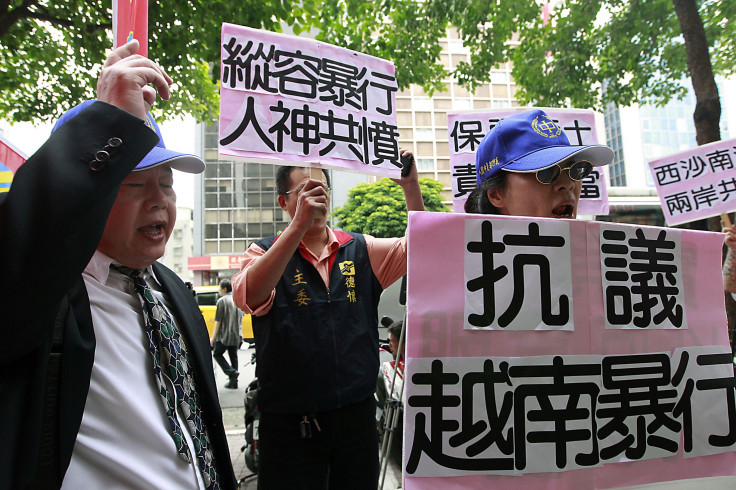Vietnam Riots Protesting China Oil Rig Kill More Than 20 In Latest Round Of Violence While White House Urges Dialogue

More than 20 people have been killed and hundreds injured in Vietnam after rioters attacked a steel plant late Wednesday as protests against a Chinese oil rig raged on for a third day in the country while the White House urged dialogue between the two protesting sides.
In one of the worst breakdowns in Sino-Vietnamese relations, rioters in the country attacked a steel plant estimated by local media to be worth $20 billion and owned by the Formosa Plastics Group, Taiwan's biggest investor in Vietnam. Wednesday's violence led to the death of five Vietnamese workers and 16 other people, Reuters reported Thursday, citing a doctor at a hospital in central Ha Tinh province. Protests against Chinese and Taiwanese businesses flared up Tuesday after China deployed an oil rig in a disputed region of the South China Sea.
"There were about a hundred people sent to the hospital last night. Many were Chinese. More are being sent to the hospital this morning," the doctor at Ha Tinh General Hospital told Reuters by phone on Thursday.
Meanwhile, the White House said Wednesday that the dispute between China and Vietnam needs to be resolved "through dialogue, not through intimidation," Reuters reported, citing Jay Carney, a spokesperson for the White House, who added: "We again urge dialogue in their resolution."
While Hong Kong and Beijing issued travel warnings for the region, the protests grew to include nearly 20,000 workers and continued at industrial parks in Ho Chi Minh City and Hanoi. The unrest was triggered Tuesday by the deployment of a Chinese oil drilling rig close to the Paracel Islands in the South China Sea, which are controlled by China but also claimed by Vietnam, and at least 15 factories believed to be mostly Chinese-owned were set on fire and hundreds of businesses looted in southern Vietnam in the ensuing violence.
“Every Vietnamese knows that China has invaded Vietnam multiple times over the centuries, and therefore it’s in their DNA to be upset about what’s happening with the oil rig, but you can’t join in the global supply chain and allow these kinds of things to happen,” Murray Hiebert, a Washington-based senior fellow at the Center for Strategic & International Studies, said according to Bloomberg, adding: “Feeling compelled to stand up to China is one thing, but letting this kind of popular sentiment run amok is pretty dangerous for Vietnam.”
© Copyright IBTimes 2025. All rights reserved.





















